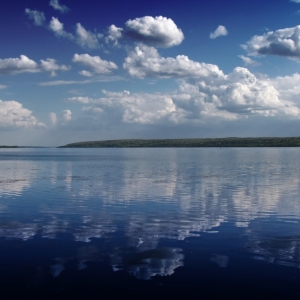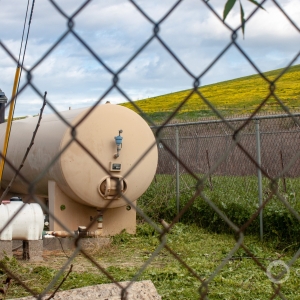Federal Water Tap, April 19: Senate to Debate Water Infrastructure Bill This Week
The Rundown
The Senate majority leader indicates he wants action on a water infrastructure bill this week. House Democrats introduce a bill to remove lead pipes from public and federally subsidized housing. California Democrats propose federal funds for repairing canals damaged by subsidence. The Interior secretary revokes a dozen Trump-era energy orders. Forecasters see low flood risk this spring for the Missouri River basin. President Biden nominates Radhika Fox to lead the EPA Office of Water. And lastly, severely dry conditions are forcing sharp water cutbacks in the Klamath River basin.
“As the country turns the corner from Covid-19, our focus will soon shift to how we can cement our economic recovery and create the jobs of the future. President Biden’s Build Back Better agenda — a big, bold investment in infrastructure and jobs — is extremely important to that effort. It has wide support among Democrats and wide support among the American people. Many, many Republicans out there in the country support this bill and this concept. The water infrastructure bill is a small but important part of that overall effort.” — Sen. Chuck Schumer, the majority leader, speaking about his plans for a water and wastewater infrastructure bill.
By the Numbers
$250 million: Funding, over three years, that would be authorized for removing lead pipes from public and federally subsidized housing under a bill introduced by House Democrats.
News Briefs
Senate Plans Debate on Water Infrastructure Bill
Sen. Chuck Schumer, the majority leader, said that he would bring a water infrastructure bill up for debate this week.
Approved unanimously in committee, the bill would increase authorized funding for drinking water and wastewater systems, in addition to designating more money for low-income communities and for replacing lead pipes. The bill includes funds for connecting households with private wells to public water systems and for taking inventory of small system assets.
“We hope our Republican colleagues join us in advancing these proposals to repair and reimagine our Nation’s infrastructure for a new century,” Schumer said.
A standalone water bill might have more success than President Biden’s omnibus infrastructure plan.
Sen. Mitch McConnell skewered the $2 trillion proposal for its expansive view of infrastructure, proclaiming it nothing more than a “multitrillion-dollar slush fund for unrelated bad ideas.”
Haaland Revokes Trump-Era Secretarial Orders
Deb Haaland, the Interior secretary, revoked a dozen Trump-era secretarial orders on energy development, deeming them inconsistent with current administration policy.
The revoked orders include streamlining environmental reviews and lifting burdens on energy production from federally managed public lands.
Water Legislation in Congress
- California Democrats introduced bills that would fund the repair of canals in their state that have been damaged by sinking land due to groundwater pumping. The bill would authorize $653 million to restore the carrying capacity of three such canals — Friant-Kern, Delta-Mendota, and California Aqueduct — that move water to farms and cities in the Central Valley and Southern California. Federal costs would be capped at one-third of the total. The bill would also authorize $180 million for salmon restoration in the San Joaquin River.
- House members introduced bipartisan, but heavily Democratic, legislation to force the EPA’s hand on regulating PFAS chemicals. The bill would require that the agency issue drinking water standards for PFOA and PFOS within two years. (The agency has already said it will regulate the two compounds.) The bill requires the agency to list the two compounds as hazardous substances under federal environmental cleanup laws. It also orders the agency to set limits on industrial discharges of PFAS. (The agency has issued interim guidance on that front.)
- Forty House Democrats co-sponsored a bill to remove lead pipes from public and federally subsidized housing. The bill orders the secretary of Housing and Urban Development to catalog, within 24 months, such housing with lead pipes. The bill would allow the department to provide grants to housing owners or agencies for removing the pipes. The bill authorizes $250 million over three years for this purpose.
In context: Sinking Land Causes California Water Chokepoint
Wild Rice and Water Quality in Minnesota
The U.S. Environmental Protection Agency is requiring Minnesota regulators to resubmit a polluted waters assessment because it ignores wild rice, which is a cultural touchstone for Indigenous groups.
MinnPost reports that the EPA is partially disapproving the state’s list of impaired waters because it does not include waterbodies polluted with sulfate, which harms wild rice. The EPA notified state regulators that the agency is developing its own list of water impaired by sulfate.
Q&A with EPA Water Office Official
Politico published a Q&A with Radhika Fox, the principal deputy administrator of the EPA Office of Water. The interview touches on how the administration will implement its environmental justice commitments, water infrastructure funding, and reviewing Trump-era regulations.
President Biden nominated Fox last week to lead the EPA Office of Water.
Studies and Reports
Little Water Available in Klamath Basin
The Bureau of Reclamation announced that irrigators in the Klamath River basin of Oregon will receive a tiny amount of water this year as the agency attempts to balance competing demands to sustain endangered fish species during a historically dry year.
The agency determined an initial allocation of 33,000 acre-feet from the Klamath Project, which is about 6 percent of what farmers say they need.
Klamath Water Users Association president Ben DuVal said, “”Family farms, rural communities, and wildlife are going to suffer beyond imagination.”
Tribes in the basin are worried about low flows affecting salmon runs.
“We know it is impossible to meet everyone’s water needs when the rains don’t come,” said Karuk Tribe chairman Russell Attebery. “For the Karuk Tribe, this is about more than economic survival. Our cultural identity is intimately linked to the salmon, sturgeon, steelhead, and lamprey.”
In context: Epic Drought Means Water Crisis on Oregon-California Border
Cape May County Water Supply Planning
Continued reliance on groundwater for municipal water use means that Cape May County, at the southern tip of New Jersey, will have to contend with salt water in wells, drying wetlands, and reduced stream flows, according to a U.S. Geological Survey report.
The USGS analyzed three baseline water-use scenarios and six future scenarios. Ecological impacts of groundwater pumping are unavoidable, but could be reduced by drilling wells farther from the coast, reducing withdrawals from coastal wells, building a desalination plant, or injecting recycled water underground to act as a freshwater barrier.
On the Radar
Low Flood Risk in Missouri River Basin
Unlike recent years, when rivers topped their banks and breached dams, the Missouri River basin will not see widespread flood damage.
“The flood risk over most of the Missouri River basin is much reduced because of the below-normal snowpack,” said Kevin Low of the Missouri Basin River Forecast Center. “You have the lack of plains snow and near average for mountain snowpack.
Water Bill Assistance Fund Meeting
The Department of Health and Human Services will hold meetings for state agencies, tribes, and community groups to explain federal funds available for water bill assistance. The department also hopes to learn from stakeholders about their needs in administering the program.
The meeting on April 20 is open to all stakeholders. The meeting on April 22 is for tribal representatives.
Congressional Hearings
- The Senate Appropriations Committee will hear from four Cabinet secretaries on April 20 about infrastructure and climate change.
- The House Natural Resources Committee will discuss on April 21 infrastructure needs in Indigenous communities.
Federal Water Tap is a weekly digest spotting trends in U.S. government water policy. To get more water news, follow Circle of Blue on Twitter and sign up for our newsletter.
Brett writes about agriculture, energy, infrastructure, and the politics and economics of water in the United States. He also writes the Federal Water Tap, Circle of Blue’s weekly digest of U.S. government water news. He is the winner of two Society of Environmental Journalists reporting awards, one of the top honors in American environmental journalism: first place for explanatory reporting for a series on septic system pollution in the United States(2016) and third place for beat reporting in a small market (2014). He received the Sierra Club’s Distinguished Service Award in 2018. Brett lives in Seattle, where he hikes the mountains and bakes pies. Contact Brett Walton






Leave a Reply
Want to join the discussion?Feel free to contribute!